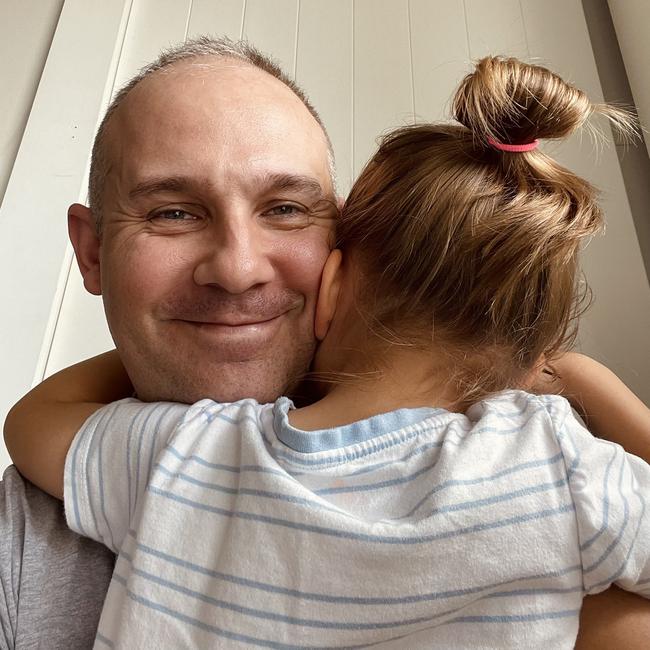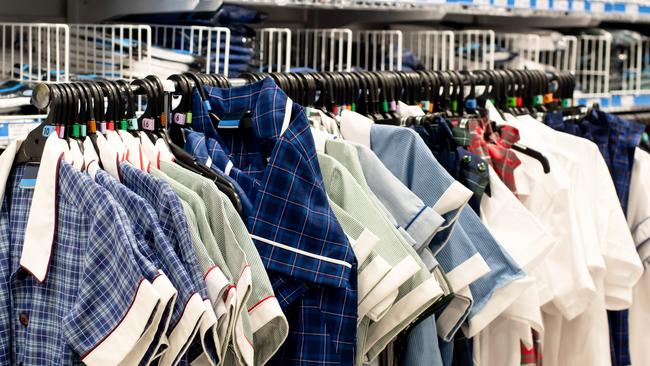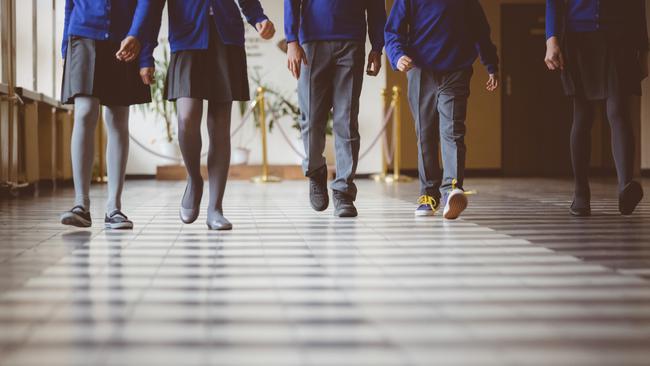Ann Wason Moore says Aussie schools need to stay consistent with their uniforms
School girls are having their skirt lengths checked and their waistbands monitored – this is why rules need to change.
Education
Don't miss out on the headlines from Education. Followed categories will be added to My News.
It’s called a uniform, but it seems rules regarding student ensembles are anything but consistent.
Mr Morris vowed to continue fighting ‘gender inequality’ in schools, but readers were divided over whether he made the right decision, with some arguing ‘rules are rules’ and others stating the rules were unequal and unfair.

But what this debate highlighted was that our views on uniforms are, well, not uniform.
As someone who grew up in the United States, I never once envied my public school friends who were allowed to choose free dress every day.
No matter how ugly the uniform – and ours was grey and yellow – I was thrilled to be spared the agony of choice and peer comparison.
As a parent now, I know we would never make it out the door if my kids had to think about what to wear … I’m lucky if they can locate their uniforms by themselves.
Research also shows that uniforms are beneficial, with studies showing evidence that uniforms helped students focus in class, although they did not have an impact on academic achievement.

It can also help with safety, making it easy to identify an outlier on campus or to locate students during an excursion.
But my criticism comes down to the details … because not all uniforms are created equal.
While we may not all embrace Mr Morris’s point that hair rules should be the same for boys and girls (ie: if it’s long, tie it up), it does seem that the appetite for equality is growing almost as fast as the blokes’ hair.
Already on the Gold Coast, private schools such as Trinity Lutheran College and Somerset College have embraced this gender-neutral hair policy.
And if we’re not all ready for that, surely we can at least agree that a simple, comfortable uniform is best for both our boys and girls?
Yet looking at many of the Coast’s private school uniforms with their formal hats, long socks in the summer, heavy skirts, belts, ties and blazers … it sure doesn’t seem like the wardrobe of choice for children studying in a subtropical city.
The question is whether we are designing student uniforms to make the kids feel comfortable, or to make the school look good?
“If you’ve got a uniform that restricts your movement and you’re a primary schooler, then you can’t turn cartwheels and do all those normal things that kids do to let off steam at break (time),” public health lecturer Dr Johanna Reidy told the ABC.
“And there’s good evidence that what kids do during break — getting all the squiggles out — is really important for them to be ready to learn when they are sitting down.”
And that’s where gendered uniforms really fail.

Because while even the most formal boys’ uniforms allow for movement, that’s not the case for girls.
Indeed, a friend told me the girls at her daughter’s private primary school were told not to do handstands or cartwheels because they were wearing dresses. No matter they were wearing bike shorts underneath.
Meanwhile, even at private senior schools, girls are still having their skirt lengths checked, even their waistbands monitored to ensure they’re not rolled.
You know what would solve that problem? Shorts.
Hey, if boys are free to display their knees (and I’ve never heard of their short lengths being checked), so too should girls. #freethekneecaps
Given the excessive waitlists at almost every Gold Coast private school, allowing these students to wear the equivalent of a sports uniform every day isn’t going to ruin their reputation. But it might increase the students’ connection and engagement.
By all means, schools should be allowed to enforce their uniform rules – that’s a lesson that kids will need for the workplace as well.
However, the priority here should be ensuring the uniforms are practical, neat and clean, not whether they look feminine or masculine, elite or common.
The best schools should not be judged on how the students look, but how they make the students feel – supported, empowered and proud.
Let’s teach our kids that while presentation matters, it’s only skin deep. Let’s spend less time worrying about what they are or aren’t wearing, and more time thinking about what they are or aren’t learning.





